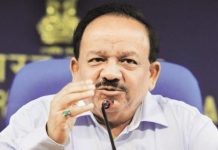 “Urjit Patel is very important for the country”. Who said this? Not Prime Minister Narendra Modi, who has been instrumental in Patel’s selection as the next governor of Reserve Bank of India, succeeding Raghuram Rajan. Nor Finance Minister Arun Jaitley, who is currently at the helm of affairs.
“Urjit Patel is very important for the country”. Who said this? Not Prime Minister Narendra Modi, who has been instrumental in Patel’s selection as the next governor of Reserve Bank of India, succeeding Raghuram Rajan. Nor Finance Minister Arun Jaitley, who is currently at the helm of affairs.
Few people know that this statement came from Manmohan Singh, when he was prime minister in 2013. The occasion was when Patel had applied for an Indian passport, before taking up the offer to become the RBI deputy governor. Patel’s recommendation letter addressed to the home ministry was written by none other than Manmohan Singh, the then prime minister. It is believed that when Patel was picked up by the International Monetary Fund (IMF) to head its India office, the then prime minister, PV Narasimha Rao, the then finance minister Manmohan Singh and the then commerce minister, P Chidambaram had expressed admiration for Patel.
It is an established fact that though he was born in Kenya and studied in the UK and the US, the focus of Patel’s scholarly pursuits was none other than India. When Patel was heading the IMF’s India Chapter, Manmohan Singh requested the then IMF chief to “loan” him for two years to be an advisor in the finance ministry. Patel has not only won admiration from Congress leaders but also from the NDA leadership, including Modi when he was Gujarat chief minister. In the mid-1990s, when Patel drafted his first report to create the Infrastructure Finance Development Company, Chairman of Reliance Industries Mukesh Ambani asked him to lead Reliance’s energy operations, a job he held for two years. It was during this stint that Patel met Modi, following which the Gujarat government made him a non-executive director on the board of Gujarat State Petroleum Corporation.
Having been Deputy Governor for three years, Urjit knows the job he has been given. He belongs to the Raghuram Rajan league, having honed his talent at Oxford, the University of London and Yale. Born in Nairobi on 28 October 1963, Patel’s thought-papers were well appreciated at Yale and Oxford, from where he completed his MPhil, and in many global institutions including the IMF and World Bank. However, it was not only his qualification and impressive CV (PhD in economics from Yale, educated at Oxford, and stints in IMF and The Boston Consulting Group) but also because Jaitley too had strongly recommended the name of Urjit Patel for the coveted top slot at the RBI.
It is learnt that flamboyance is not Patel’s style. Like Thomas Carlyle, the famous Scottish philosopher, social commentator and teacher, “Speech is great but silence is greater”. He prefers to keep a low profile but has strong fundamentals. Little doubt that from PV Narasimha Rao to Manmohan Singh, from P Chidambaram to Arun Jaitley, Urjit Patel has been everyone’s favourite. In this case, the final seal of approval on his name came from Prime Minister Narendra Modi himself, who had detailed discussions with his Finance Minister, as there were at least five names in contention for this post.
Raghuram Rajan must be credited with bringing a major shift in our banking system by cleaning up bad loans. We should expect the new RBI Governor to carry forward his rich legacy to bring much-needed reforms in our banking
Besides Urjit Patel, the final list had formidable contenders like Chief Economic Adviser Arvind Subramanian, Economic Affairs Secretary Shaktikanta Das, the RBI’s former Deputy Governor Subir Gokarn, and noted economist Kaushik Basu.
When it came to a tie between Urjit Patel and Subramanian, Modi finally chose Patel. Usually, there is considerable time overlap between the incoming and outgoing governors, but a decision on the incumbent governor took lots of time. The final seal of approval came only on 20 August, just a fortnight before Raghuram Rajan relinquishes office on 3 September.
Urjit Patel’s name figured prominently in the list of four shortlisted candidates who could fit the bill. The government had formed a special search committee headed by Cabinet Secretary PK Sinha. Interviews were held at PMO residence at Race Course subsequently. The name of Subramanian was also considered in the final round but ultimately the choice fell on Patel, as both PM and FM approved his candidature for the top post. There is talk in the corridors of power that Basu and Gokarn were also strong contenders but when the PM was told that Basu may not be available immediately to step in when Raghuram Rajan gives up the charge, Patel’s name got all the more weightage.
Also, it was learnt that bringing Gokarn back from IMF would not be a wise decision as the government itself had recommended Gokarn to the IMF. For the record, Gokarn had been appointed as executive director to IMF only in November 2015 to represent India, Bangladesh, Nepal and Sri Lanka. Taking a U-turn would have meant “indecisiveness” on the part of the government on such vital decisions.
To be fair to Raghuram Rajan, he should be credited with bringing a major shift in our banking system by cleaning up bad loans, as non-performing assets (NPAs) were wrecking the banking system. We should expect the new RBI Governor to carry forward the rich legacy of Rajan to bring much-needed reforms in our banking system. It is a time of economic transition and a very critical juncture for our banking system. The bank of the nation, State Bank of India, is going ahead to merge subsidiary banks to become a bank to reckon with, not only in India but the world over. Rajan was often very vocal and could call a spade a spade, for which he was criticised by some political figures. Inflation has to be checked to provide succour to poorest of the poor. On the part of political leadership, care must be taken — as happened in case of the outgoing RBI Governor, who was criticised by a senior politician from the ruling party — Urjit Patel should not be a target of politicking and should be allowed to function sans controversies in the best interests of the country.
letters@tehelka.com










